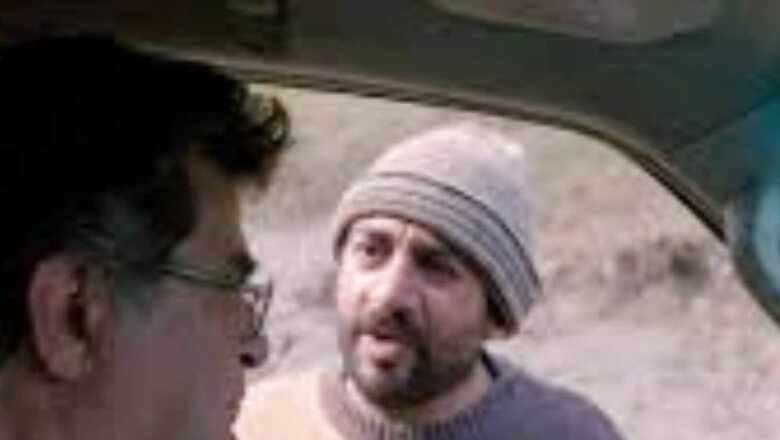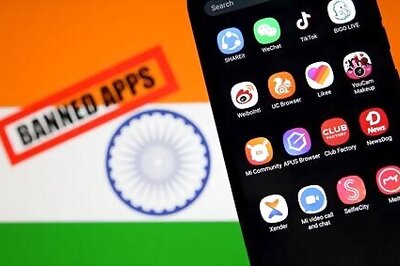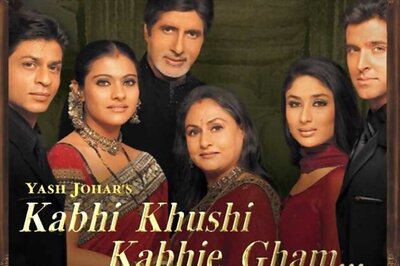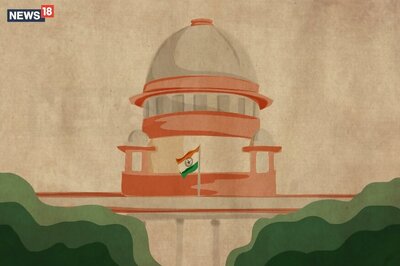
views
If there is one incredible example of artistic defiance, Iranian movie director, Jafar Panahi, could walk away with glorious honours. Associated with the Iranian New Wave, he began his cinematic journey as an assistant to another legendary helmer, Abbas Kiarostami. Panahi was internationally lauded when he made his feature debut in 1995 with The White Balloon. It got the Camera d’Or at Cannes. Interestingly, this was the first ever time when an Iranian work had received a major award at the French festival, often lauded as the Queen of All.
Although Panahi was quickly recognised as one of the country’s most influential filmmakers, winning accolade after accolade in Berlin, Venice and Locarno among others, his own government treated him with disdain. For, his cinema was often critical of the administration. His movies were banned in Iran, and he had to often struggle to make them and have them screened outside. His No Film was set inside his own home, where he was under house arrest. For The Taxi, he disguised himself as a cabbie, placed a tiny camera on the dashboard of his vehicle, took passengers, had invigorating conversations with them and made a great film that won the Golden Bear at Berlin.
Known for its humanistic look at life in Iran, sometimes scathingly narrated, his latest outing, No Bears, was screened at the recent Venice Film Festival’s Competition section. No Bears opens theatrically in the UK and elsewhere today. Although now in jail for six years, Panahi’s never-say-die attitude is a marvellous lesson for all those eager to say what they want to, and fearlessly.
Interestingly, No Bears comes at a time when Iranian women are rising in revolt against misogynists. The protests began after a young woman died in police lockup after she was taken in for wearing her hijab improperly.
No Bears is set in a village, where the people live in mortal fear of imaginary bears, and they are pushed into believing that the animals are roaming about. They are not, and Panahi makes a veiled comment here about how Iranians are fed fear – about their morality police. The movie underlines the anguish in the country and people’s frustration at being prevented to lead lives of freedom and joy. Invariably, women suffer most.
Panahi himself plays “Jafar Panahi” who is banned from making films or leaving his country. So, he moves close to the Turkish border into a village, where an Iranian couple, Bakhtiar (Bakhtiar Panjei) and Zara (Mina Khosravani), are trying to run away from Iran in search of a better life. Pretending to photograph local customs, including a coming wedding, he secures the consent of the villagers.
But a misunderstanding escalates, and village elders confront Panahi and demand he hand over all that he had photographed, especially that which they feel is scandalous. He is absolutely sure he had committed no such offence.
There is worse to come. Zara is completely unaware that she is in a real drama about how smugglers are stealing the passports of tourists coming from the UK and European Union. Panahi had kept her in the dark.
This is a powerful reflection of how he and other fellow moviemakers have been evading unhealthy censorship laws to make political cinema. No Bears says no to rigid laws which vitiate the social atmosphere, curbing the freedom of the man on the street. It says no to misogynist tendencies, to theocratic tyranny, and Panahi seems to have seen what is coming in Iran. He appears to have forecast the current political upheaval.
Read all the Latest Movies News here




















Comments
0 comment